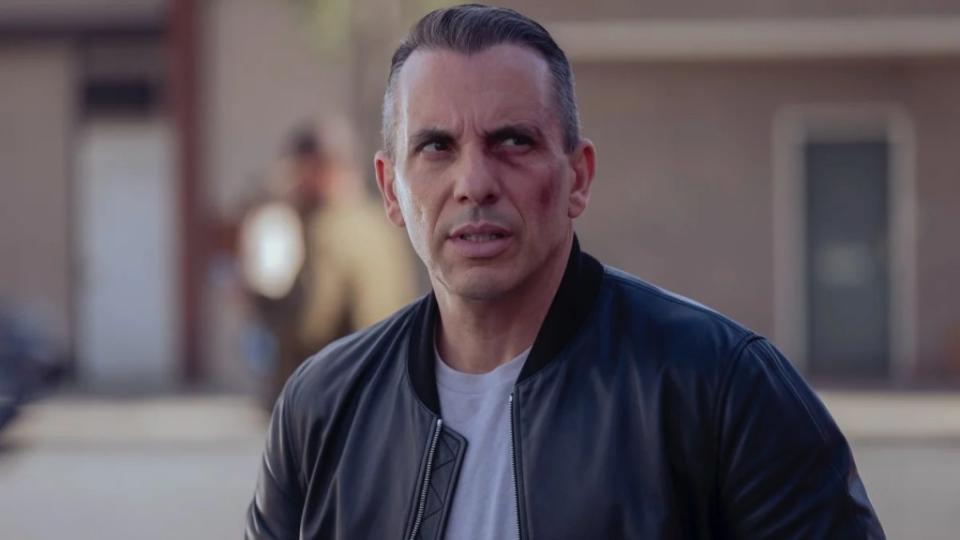Chuck Lorre Has Heard Sitcoms Are ‘Dying’ ‘Too Many Times to Think That It’s For Real’
- Oops!Something went wrong.Please try again later.
Ever since Chuck Lorre first started making sitcoms in the late 1980s, he’s been told that it’s an art form that’s “dying.”
“And then somebody comes along and does something wonderful with the form. Suddenly, it’s a genuinely legitimate form again,” the comedy legend and super producer told TheWrap. “I’ve seen the obituary too many times to think that it’s for real.”
The television Grim Reaper came for two of Lorre’s shows recently. In the weeks after this interview was conducted, CBS announced that two of the producer’s sitcoms — “Young Sheldon” and “Bob Hearts Abishola” — were coming to an end following their seventh and fifth seasons.
Fittingly, the end of an industry is a central theme for Lorre’s latest ambitious show, Max’s “Bookie.” Created by Lorre and Nick Bakay, the series follows a sports gambling bookie by the name of Danny (Sebastian Maniscalco). The series is more “Kominsky Method” than “Two and a Half Men” as it chronicles Danny’s day-to-day life collecting money he’s owed as well as his fears his job may collapse overnight with the rise of legalized sports betting. During a recent interview with Variety, Lorre noted the premise of “Bookie” interested him “because I can’t help but think that I might also be in a dying profession.”
“When I started a long time ago, there were probably maybe 40 or more situation comedies on network television,” Lorre explained to TheWrap when asked to elaborate on that feeling. “What are there now, like maybe five or six? I think that’s it’s a pretty good parallel to a dinosaur watching an asteroid coming hurtling towards the Earth.”
Lorre went on to note that “the nature” of both television and comedy have changed throughout the course of his career. “It’s diminishing. It’s getting smaller, or it’s morphing into something else,” Lorre said.
But from where he’s sitting, Lorre doesn’t necessarily think that change is bad. The shifting landscape of the industry allowed him to create Golden Globe-winning and Emmy-nominated “The Kominsky Method,” and it gave him the opportunity to work with Maniscalco on “Bookie.”
“I could never have done that on a network television world,” Lorre said.

That descriptor certainly applies to “Bookie,” which handles far more mature subject matter than many of Lorre’s other comedies. The premise of the series revolves around Danny’s role in “illegal gambling” rather than what’s been called “blessed” gambling, aka gambling through sites such as DraftKings that have been approved by professional sports organizations.
“The NFL was not happy with our series,” Lorre joked. Beyond an “interesting” look into this world, Lorre emphasized that “Bookie” attempts to portray the full realities of gambling addicts, especially as the practice becomes more common. “I think the devastating effects of addiction to gambling are going to multiply and be seen over the next few years beyond anybody’s wildest dreams. It can only get worse.”
That more mature focus can be seen in “Bookie’s” very first episode, which features Maniscalco getting beaten up and tracking down Charlie Sheen as the actor hosts a poker game in one of his old rehab centers.
Sheen appears in two episodes of the series, an experience that Lorre called “wonderful” and “healing” in the wake of his public falling out with the “Two and a Half Men” star in 2011. “I loved how great he was. He really did put on a clinic for comic act comedic acting. It was something to see,” Lorre said.
From the beginning, Lorre knew that “Bookie” was a show that would be better served as a single-camera series. But ultimately he doesn’t think the format of a comedy necessarily matters.
“It was somebody — I think Bill Prady, who I created ‘Big Bang’ with — who said it very succinctly. He goes, ‘The audience doesn’t care how many cameras you’re using. They just care if it’s good,'” Lorre said. “Fundamentally, if I’m giving this show my time and it’s a comedy, or purports to be a comedy, the amount of the cameras is irrelevant.”
That being said, Lorre still sees merit in the multicam sitcom. Lorre likened filming an episode of a sitcom to “putting on a play.”
“If you’ve been to tapings, you know that silence is horrifying. But it tells you that you’ve made a mistake. In essence, it’s what movies do with focus groups,” Lorre said. “We do that every week on a four-camera show. Those 200 people in the stands are telling us we weren’t not as smart as we think we are, and they don’t really care if I think it’s funny. It’s whether they think it’s funny. It’s humbling, but it’s also an endless education.”
“It’s a wonderful guessing game that involves millions of dollars,” Lorre joked.
Lorre emphasized that he doesn’t use “fake laugh stuff” in his shows. The audible response that makes it into the final cut comes from the live studio audience. “To be truthful, you’re not supposed to hear the laughter in the four camera sitcom because you’re laughing,” the creator added.
Lorre noted that his history with sitcoms may not be “terribly edgy,” but he’s unconcerned by these critiques.
“Laughter is a worthy goal. It is fundamentally the goal of comedy,” Lorre said. “That’s pretty much been the thing that keeps me focused: Is what we’re doing causing laughter? if it’s not, what are we doing? It’s maybe great, but it’s not a comedy.”
The first two episodes of “Bookie” are available on Max now. Two new episodes will premiere each week until the series’ conclusion.
The post Chuck Lorre Has Heard Sitcoms Are ‘Dying’ ‘Too Many Times to Think That It’s For Real’ appeared first on TheWrap.

